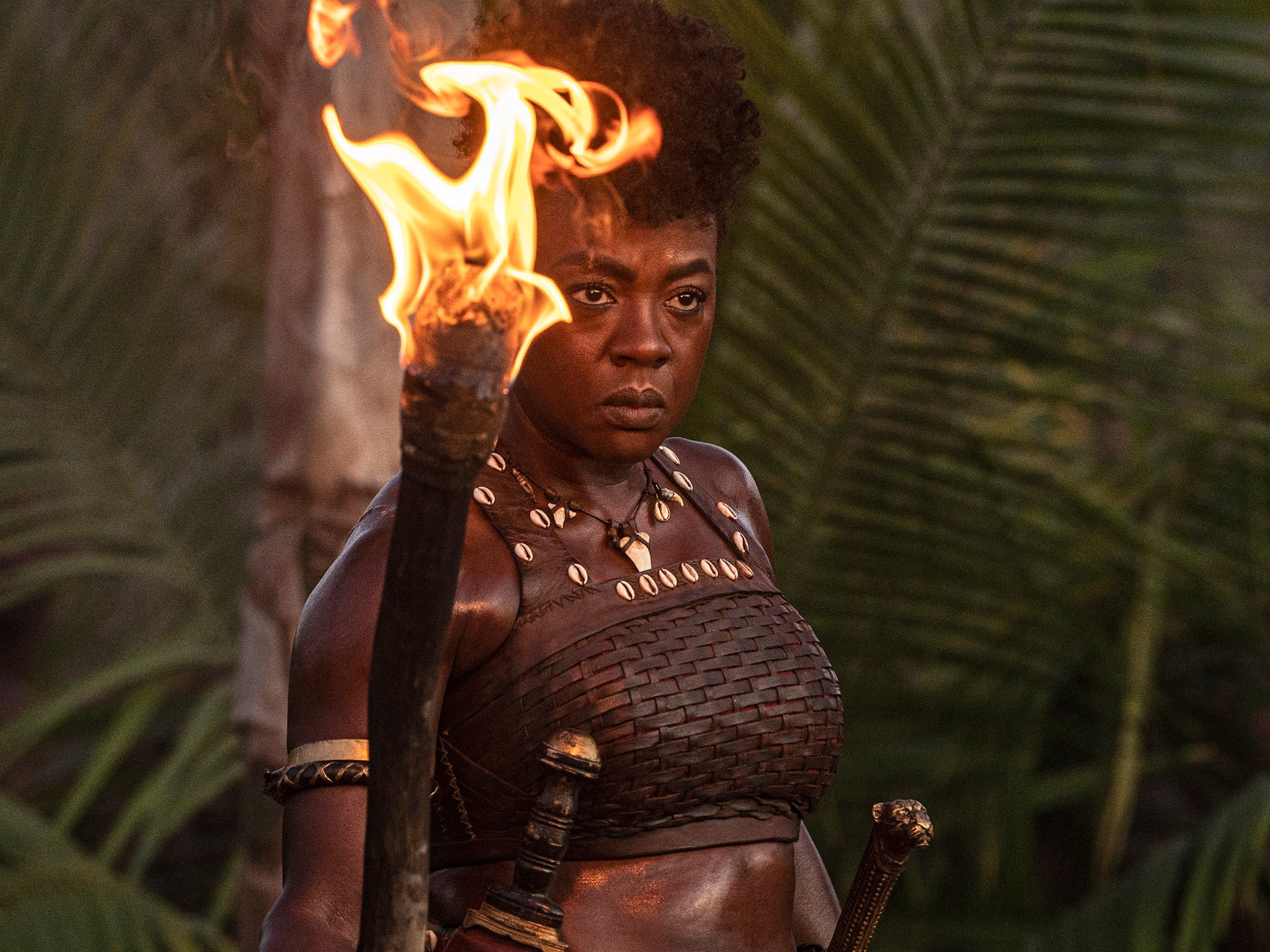The Woman King: Viola Davis says she thought about the man who sexually assaulted her while playing a warrior
Actor wrote in her memoir about the abuse she and her sisters suffered when they were young
Viola Davis has shared that she mined traumatic experiences from her past to help her play a warrior in her latest film,The Woman King.
The movie sees Davis plays the fictionalised leader of the real-life Agojie, an elite unit of all-female warriors active in the historical kingdom of Dahomey.
In Davis’s memoir, Finding Me, which came out earlier this year, the actor wrote about how she and all her sisters were subjected to sexual assaults by relatives, babysitters and the neighbourhood “dirty old men” when they were young.
The Woman King contains a scene in a slave market, in which Davis’s Nanisca ambushes the film’s villain – General Oba of the enemy Oyo Empire – in an attempt to start a war. As she does so, a flash of terror can be seen on her face.
In a new interview with The Guardian, Davis reflected on that scene, saying: “Every time I approached Oba, I was approaching the man who sexually assaulted me. I was not just approaching the enemy.”
Speaking about her need to face her fears, she added that “the things that have taken the strongest human being down have been a traumatic memory that they could not fight through.”
Elsewhere in the interview, Davis – who won an Oscar for her role in the 2016 film Fences and has been Academy Award-nominated for her performances in three other movies – also talked about how she can use her position to change how Black women are seen.

“What is in my power to change is to show people that we are more than the stamp that people have put on dark-skinned women,” she said.
“That we are sexual, that we are desirable, that we can be smart, that we are way more expansive and our identity is not determined by your gaze. I can change that. I can change the way Black women are seen, to some extent, within the industry.”
Read The Independent’s four-star review of The Woman King here.
If you’re worried about a child, even if you’re unsure, you can contact professional counsellors at the NSPCC for help, advice and support by emailing help@nspcc.org.uk or calling 0808 800 5000. For those aged 18 or under, Childline offers free, confidential advice and support whatever your concern and whenever you need help. Call 0800 1111 or Contact Childline.



Bookmark popover
Removed from bookmarks